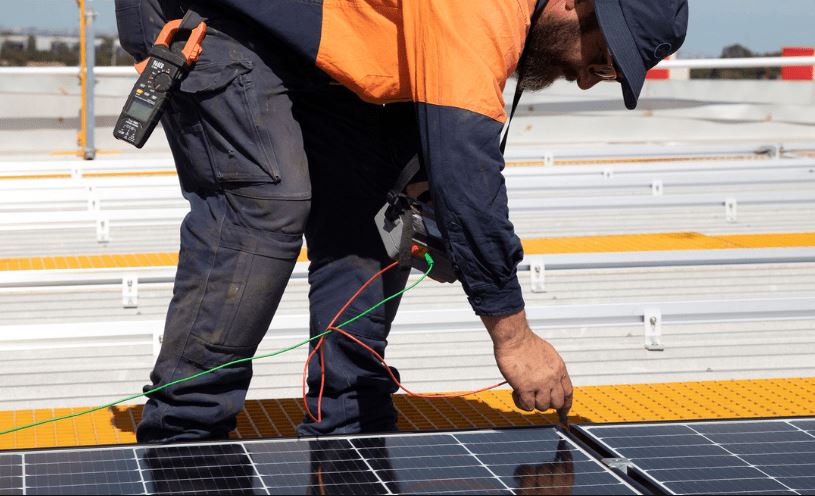State government agency Solar Victoria has confirmed that under new rules to take effect from March next year, all new inverters installed under its programs will need to be capable of remotely and dynamically adjusting PV export limits to help network operators maintain grid stability.
In the latest annual Notice to Market published this week, Solar Victoria said it will be mandatory from 1 March 2024 for inverters installed under its Solar Homes and Solar for Business programs to be ‘dynamic export’ capable to allow for the future implementation of flexible export arrangements by distributed network service providers (DNSPs).
“A solar PV system installed today will likely not include an inverter capable of modulating how much solar energy is exported to the grid,” the agency said. “Without this dynamic export functionality, DNSPs may set a low static export limit, which can result in solar energy not being utilised.”
Solar Victoria said effective 1 March 2024, PV inverters installed through the Solar Homes program must be compliant with IEEE 2030.5 and Common Smart Inverter Profile (CSIP)-AUS protocol.
The move mirrors that of South Australia with the state government to progressively roll out its new dynamic export program as a standard service offering from July 2023.
South Australian rooftop solar owners can currently export 5 kW of electricity to the grid but the new inverter standards there will give households the option to export up to 10 kW, in return for allowing the network operator to remotely curtail those export limits to manage grid stability.
Solar Victoria said the new inverter rule was one of five new mandatory requirements and seven new recommendations outlined in the annual Notice to Market which provides the solar industry in the state with the standards and requirements it must meet to be able to be part of Solar Victoria’s programs.
The agency said the new mandatory requirements are aimed at maximising the self-consumption of excess solar through electric hot water systems and heat pumps including mandating timers to optimise solar self-consumption and ensuring suitability and quality of heat pumps for climatic conditions and suitable sizing.
The new requirements also strengthen retailers’ ability to respond to product safety recalls; and strengthen consumer protections through warranties, as well as mandating the requirement for all solar and battery retailers to be New Energy Tech Approved Sellers.
The new recommendations relate to improving grid integration, solar grid hosting and safety through compliance with the relevant standards; improving performance warranties for solar PV panels and batteries; ensuring appropriately sized hot water heat pumps are installed; and enabling customers to view their solar generation and energy consumption.
“With the speed of innovation in solar and technologies supported under Solar Homes and the dynamic market we work in it is important that we are always looking to the future and maximising the benefits for our solar customers and integration with the transforming electricity grid,” Solar Victoria Chief Executive Stan Krpan said.
“The new requirements will help deliver the best safety and quality outcomes for Victorians who are enthusiastically making the move to all-electric homes.”
Solar Victoria said the Notice to Market 2023-24 comes into effect on 1 July 2023, with some requirements coming into effect at later dates. The current Notice to Market remains in effect until 30 June 2023.
This content is protected by copyright and may not be reused. If you want to cooperate with us and would like to reuse some of our content, please contact: editors@pv-magazine.com.









2 comments
By submitting this form you agree to pv magazine using your data for the purposes of publishing your comment.
Your personal data will only be disclosed or otherwise transmitted to third parties for the purposes of spam filtering or if this is necessary for technical maintenance of the website. Any other transfer to third parties will not take place unless this is justified on the basis of applicable data protection regulations or if pv magazine is legally obliged to do so.
You may revoke this consent at any time with effect for the future, in which case your personal data will be deleted immediately. Otherwise, your data will be deleted if pv magazine has processed your request or the purpose of data storage is fulfilled.
Further information on data privacy can be found in our Data Protection Policy.